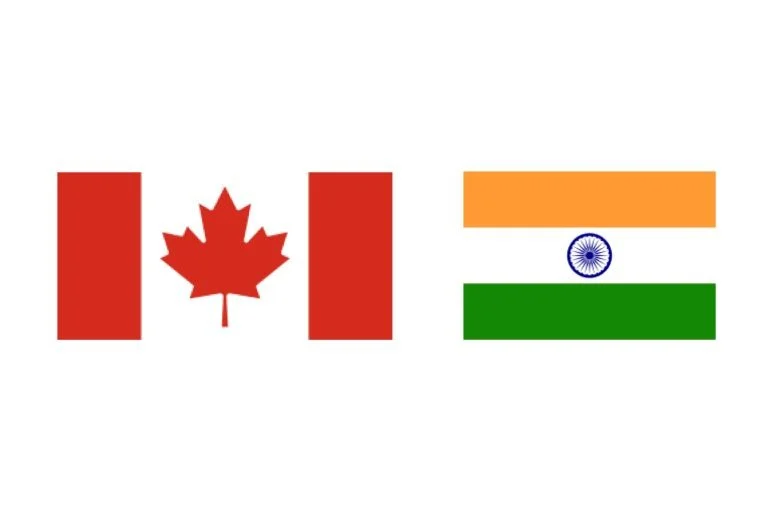In the wake of a tragic and deadly incident, the Canadian government has updated its travel advisory for India, specifically focusing on heightened risks in certain regions. The new advisory, issued on April 23, 2025, urges Canadian citizens to avoid all travel to the Union Territory of Jammu and Kashmir, as well as areas near the Pakistan border, due to an increased threat of violence and civil unrest. This update comes after a harrowing terrorist attack in Pahalgam, which has raised global concerns about safety for international tourists.
The focus keyword for this article is Pahalgam attack, and it will be used consistently throughout the post to ensure maximum relevance and search engine optimization.
Details of the Pahalgam Attack
On April 22, 2025, militants launched a brutal and chilling attack in Baisaran Valley, near Pahalgam, a popular tourist destination in Indian-administered Kashmir. According to verified reports, the attackers segregated men from women and children before opening fire, targeting individuals who could not recite Islamic verses. The terror group “Kashmir Resistance” later claimed responsibility for the Pahalgam attack, citing opposition to the settlement of outsiders in the region.
Tragically, at least 26 people lost their lives in the Pahalgam attack, marking it as one of the deadliest attacks on civilians in the region in recent years. The international community, including Canada, quickly condemned the violence and responded by reassessing their travel advisories.
Specific Updates in the Canadian Advisory
Following the Pahalgam attack, the Canadian government issued critical updates to its travel guidance for India. Key highlights include:
Avoid Travel to Jammu and Kashmir
Citizens are now strongly advised to avoid all travel to the Union Territory of Jammu and Kashmir. This is due to the very high risks of terrorism, civil unrest, and ongoing military conflict, intensified by the recent Pahalgam attack.
Stay Away from Pakistan Border Areas
The advisory extends to areas near the Pakistan border, including Punjab (except for Amritsar), Rajasthan, and Gujarat, where security conditions remain volatile.
Closure of Attari-Wagah Border Crossing
The Attari-Wagah border crossing, a popular entry and exit point for travelers between India and Pakistan, is currently closed. This precaution was taken amid growing tensions following the Pahalgam attack.
Security Risks and Ongoing Tensions
The advisory notes that regular violent clashes between militants and security forces continue to plague the region. The possibility of further attacks, similar to the Pahalgam attack, remains high, and civilians could be caught in the crossfire without warning.
General Advice for Canadians Traveling to India
Aside from avoiding Jammu and Kashmir, Canadian travelers are urged to exercise a high degree of caution throughout India. The broader regional tension between India and Pakistan can escalate rapidly, making situational awareness crucial for all visitors.
Travelers are encouraged to:
- Stay informed through local news and government alerts.
- Register with the Registration of Canadians Abroad (ROCA) service.
- Maintain a low profile and avoid areas with large crowds or demonstrations.
For ongoing updates, travelers can refer to the Government of Canada’s travel advisories.
Impact of the Pahalgam Attack on Tourism
Prior to the Pahalgam attack, the tourism sector in Kashmir had seen a major resurgence. Over 2 million tourists visited the region in 2024, setting record numbers and generating much-needed revenue for the local economy. Hotels were fully booked, trekking tours were thriving, and the serene beauty of Kashmir once again became a beacon for travelers.
However, the aftermath of the Pahalgam attack has been devastating. Tour operators have reported mass cancellations. Airlines have rushed to add return flights as panicked tourists scrambled to leave the region. Local businesses, reliant on the tourist season, now face tremendous economic hardship.
It remains to be seen how long the effects of the Pahalgam attack will linger over Kashmir’s tourism-dependent economy.
Broader Context: Violence in Jammu and Kashmir
The Pahalgam attack is not an isolated incident but part of a troubling pattern of violence in Jammu and Kashmir. Since the abrogation of Article 370 in 2019, which granted the region special autonomy, militant activities have spiked. Groups opposing India’s governance of Kashmir have increasingly targeted civilians, particularly those they perceive as “outsiders.”
The presence of security forces remains high throughout the region, but the Pahalgam attack highlights the difficulty in ensuring the safety of civilians and tourists amid persistent unrest.
Safety Alternatives for Travelers to India
Given the new advisory, Canadian travelers may want to explore alternative destinations within India that are deemed safer. Regions such as:
- Rajasthan (excluding border areas)
- Kerala
- Goa
- Karnataka (especially Bengaluru and Mysuru)
- Himachal Pradesh (except remote border areas)
These destinations continue to offer rich cultural experiences and are currently considered much safer for international tourists.
Useful resources for planning safer travels include:
What Travelers Should Do Next
Travelers already in Jammu and Kashmir should prioritize their safety by:
- Seeking shelter in secure accommodations.
- Avoiding all public gatherings.
- Coordinating with the Canadian High Commission in New Delhi for assistance.
For emergency assistance, Canadians in India can contact:
- Canadian High Commission, New Delhi: +91-11-4178-2000
- Emergency Watch and Response Centre, Ottawa: +1-613-996-8885
The tragic Pahalgam attack serves as a somber reminder of the unpredictable security landscape in certain parts of the world.
Conclusion
The Pahalgam attack has profoundly altered the security perception of Jammu and Kashmir, prompting swift action from governments worldwide. Canada’s updated travel advisory reflects an urgent need for caution, vigilance, and thoughtful planning when considering travel to India. While India remains a vibrant and welcoming country, travelers must prioritize their safety and stay informed about the evolving situation.
FAQs
1. What areas should Canadians avoid in India after the Pahalgam attack?
Canadians should avoid the Union Territory of Jammu and Kashmir and areas near the Pakistan border, including Punjab (excluding Amritsar), Rajasthan, and Gujarat.
2. Is the rest of India safe for Canadian travelers?
Many regions of India, such as Kerala, Goa, and Karnataka, continue to be safe for Canadian tourists. However, travelers should still exercise a high degree of caution.
3. How can travelers stay updated on the situation in India?
Travelers are advised to monitor the Government of Canada’s travel advisory page and register with the Registration of Canadians Abroad (ROCA) service for updates.


